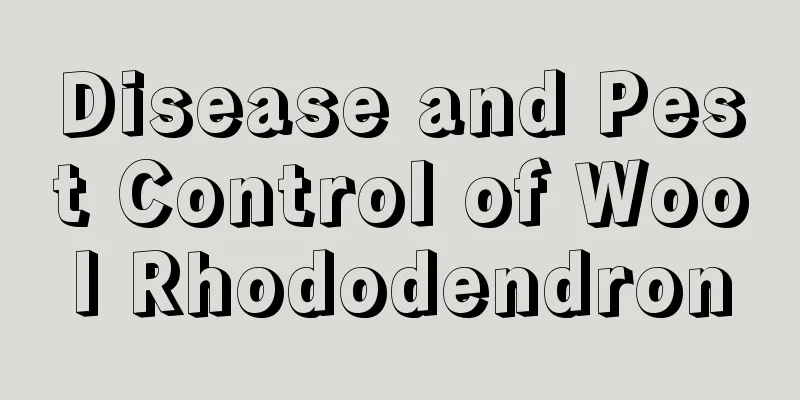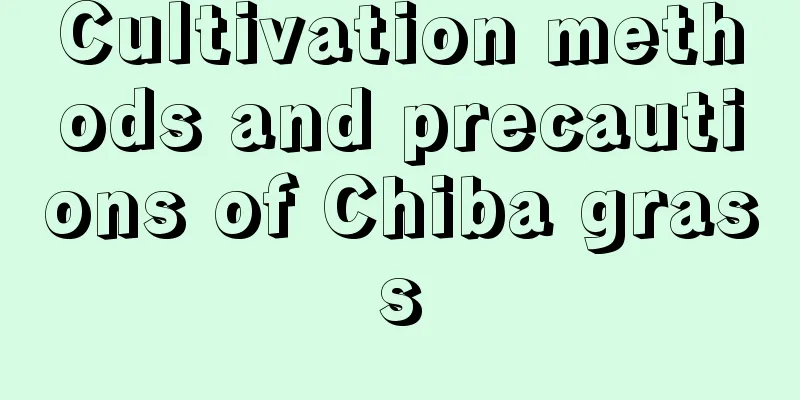How to grow peas

1. Maintenance methods1. Temperature: Peas prefer a warm environment, specifically, it is better to keep the temperature between 20 and 30 degrees. It is a semi-hardy variety, which means that it has a certain degree of cold resistance, but the temperature cannot be too low, otherwise it will still be harmful. In addition, its tolerance to high temperatures is very poor, so you must pay attention to it. 2. Light: Peas are a type of long-day plant. That is to say, before the flowering period, a long period of light must be provided every day so that its flower buds can form, otherwise it will seriously affect its flowering and subsequent results. During the rest of the growth period, appropriate astigmatism must also be provided. 3. Watering: Peas have very poor drought tolerance and require sufficient water supply during the growth period to meet their vigorous needs. But it cannot be too waterlogged, so you need to pay attention to drainage during the rainy season. 4. Fertilization: Peas do not have high requirements for soil quality and nutrients. You can only use some fertilizer during the flowering period. 2. Breeding techniques1. Reproduction: It can be done by sowing. Before sowing, the selected seeds must be soaked in 40% salt water to germinate. Afterwards, the seeds need to be mixed with rhizobia, which can effectively increase the subsequent yield. Before sowing, some fertilizer needs to be mixed into the soil, preferably well-rotted manure, as well as some phosphorus and potassium fertilizers. When sowing, the row spacing should be between ten and twenty centimeters, and the plant spacing should be about five centimeters. 2. Loosening the soil: After sowing, loosening the soil is a very important step, which helps to make the soil looser and also increases the ground temperature. In addition, before flowering, it is necessary to loosen the soil and conserve moisture. 3. Problem diagnosis and treatment1. Disease: The frequency of "root rot" is relatively high, and it can occur in the seedling stage and the adult stage. Available medications for treatment. However, the most effective way is to mix the seeds with pesticides, which can prevent and control the disease fundamentally. 2. Pests: The main types include "black miner", "leaf miner" and so on. The former can be controlled with chlorpyrifos, while the latter can be controlled with insect mite light. IV. Other issues1. Toxicity: The plant is not poisonous and the fruit is edible. 2. Can it be grown at home? Generally not, but it can be planted if you have a yard. |
<<: Cultivation method of rattan Panax notoginseng
>>: Vientiane's breeding methods
Recommend
What to do if banyan leaves turn black
High humidity Improper watering can cause great h...
Cultivation methods and precautions of double-line arrowroot
Farming methods temperature The double-lined arro...
How to plant lucky bamboo
1. Soil culture method 1. Soil selection: When pl...
Breeding methods and precautions for Fenghua roses
1. Maintenance methods 1. Soil: It prefers to gro...
The flower language and meaning of the money tree, and who should I give it to?
1. The meaning of the flower language of money tr...
Can basil be planted all year round? How many times can it be planted in a year?
The main producing areas of ercai are Sichuan, Ch...
Illustration of how to keep the succulent plant Jade Dew in a stuffy environment (why should the succulent plant Jade Dew be kept in a stuffy environment)
Why should the succulent jade plant be kept in a ...
How to grow blue chrysanthemum
Growth habits of blue chrysanthemum Blue-eyed chr...
Put these “3 kinds” of residue at the bottom of the flowerpot, it doesn’t cost any money, and the branches and leaves will grow out!
The nutrients absorbed by the roots of flower pla...
How to prune Pinus sylvestris var. mongolica? Pruning time and method
Pruning time for Pinus sylvestris Larix gmelinii ...
Does Rieger Begonia bloom all year round? (Why is it difficult to grow Rieger Begonia at home?)
Does Rieger Begonia bloom all year round? Begonia...
When is the best month to plant Lycoris radiata?
When is Lycoris radiata planted? It is more suita...
How to change the pot of the money bag
How often to repot When growing money tree, chang...
The efficacy and function of Gotu Kola
1. Diuretic Gotu Kola can help people urinate mor...
How to save Begonia root rot
1. Increase breathability Reason: Begonia needs g...









